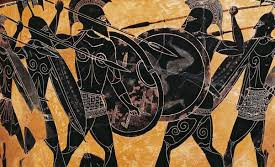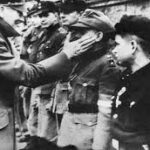Would Spartans be able to successfully defend themselves from the Romans if they were in their prime?
Would Spartans be able to successfully defend themselves from the Romans if they were in their prime? If the Spartans and Romans had clashed at their respective peaks, the outcome would depend on several factors, including the era, terrain, and specific strategies employed. Here’s a breakdown of how a battle between Spartan and Roman forces might play out:
Spartan Strengths:
Superior Individual Combat Skills:
Spartan warriors were trained from a young age through the agoge, a rigorous military education and training program. Spartan soldiers, especially during the height of their power (6th to 4th centuries BCE), were renowned for their discipline, physical prowess, and individual fighting skills.
Phalanx Formation:
Spartans were masters of the hoplite phalanx formation, a tightly-packed infantry unit where soldiers used large shields (aspis) and spears (doru) in unison. This formation was highly effective in frontal assaults or defensive actions.
Mental Toughness:
Spartans prided themselves on their endurance, discipline, and ability to withstand hardship. The rigorous training and culture of honor among them made them psychologically resilient in battle.
Roman Strengths:
Organizational Flexibility:
The Roman legions of the late Republic and early Empire were highly organized and adaptable. The Roman maniple system, and later the cohort, allowed for greater flexibility in movement and battle compared to the rigid phalanx of the Spartans. Roman soldiers were drilled in formations that could adjust to different battlefield conditions, giving them a strategic advantage.
Combined Arms and Logistics:
Roman military strategy included the use of combined arms, incorporating archers, cavalry, and siege weapons alongside their infantry. This made them versatile and effective in various combat scenarios.
The Romans also excelled in logistics, ensuring their armies were well-supplied and could fight in prolonged campaigns far from home.
Weapons and Armor:
Roman legionaries carried a variety of weapons, most notably the gladius (a short stabbing sword), pilum (a throwing spear), and their large rectangular shields (scutum). This combination allowed for a more offensive fighting style, with the pilum used to disrupt enemy formations before engaging with the gladius.
Their armor, including the lorica segmentata, offered better mobility compared to the hoplite’s heavier armor.
Tactical Comparison:
Phalanx vs. Roman Formation: The Spartan phalanx was excellent in direct, open-field confrontations, especially on level terrain. However, it lacked flexibility, which could be a weakness against the Roman manipular or cohort systems that allowed more movement and tactical adjustments. The Romans might have been able to outmaneuver the rigid Spartan phalanx by attacking its flanks or drawing it into unfavorable positions.
Training and Leadership: While Spartans were elite warriors on an individual level, Roman soldiers were part of a larger system that placed heavy emphasis on discipline and training, even for non-elite troops. Roman centurions were experienced and effective battlefield leaders, and Roman commanders like Julius Caesar or Scipio Africanus excelled in strategy, which might give them the upper hand over Spartan leadership.
Conclusion:
While Spartan warriors were formidable in their prime, their strengths lay in close-quarter battles and heavily disciplined infantry tactics. The Romans, with their more adaptable and diverse military tactics, superior logistics, and organizational flexibility, would likely have the upper hand in a prolonged conflict. On open terrain, the Spartans might hold their ground for some time, but the Romans’ ability to outmaneuver, adapt, and conduct sustained operations would eventually overwhelm the Spartans.


